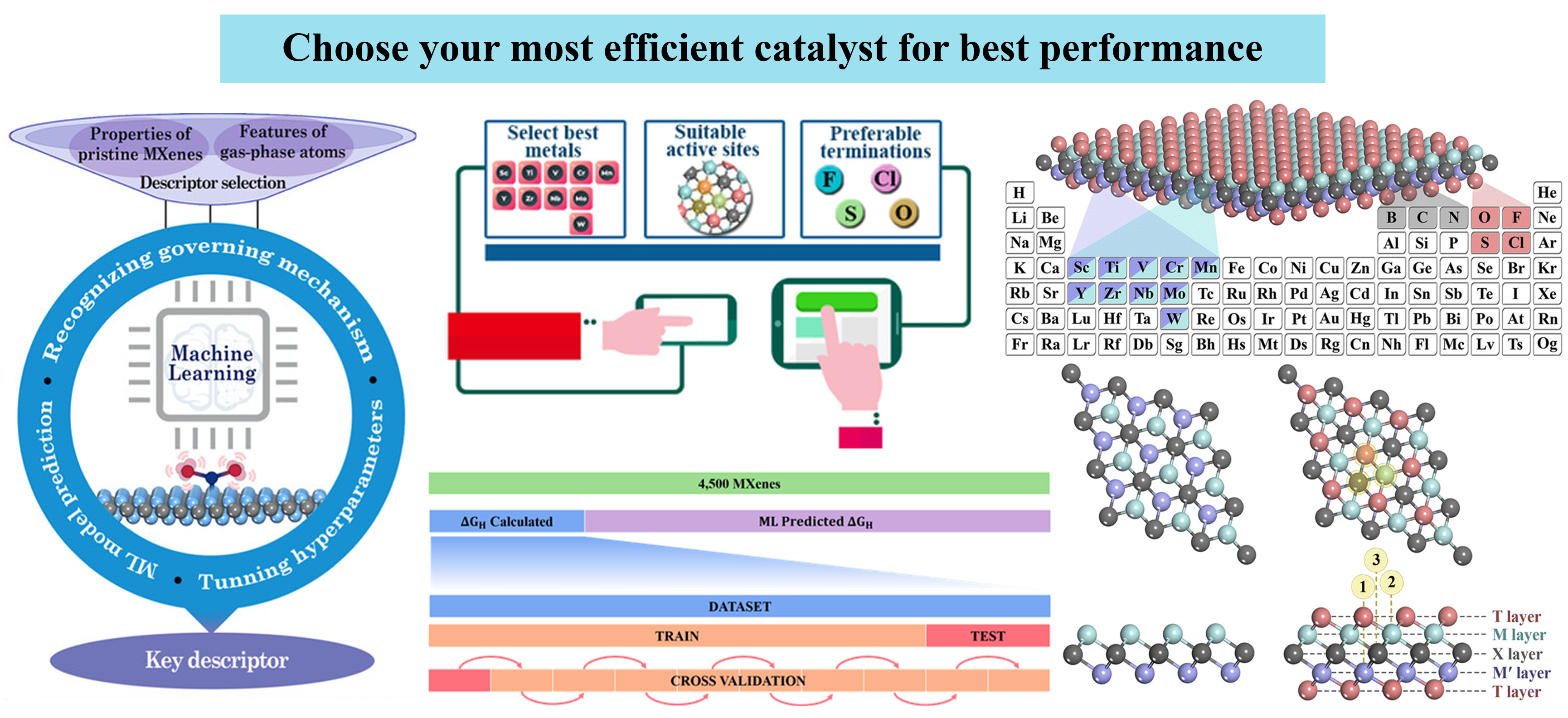(62h) Machine Learning Driven Discovery of 2D Materials for Energy and Environmental Applications
AIChE Annual Meeting
2024
2024 AIChE Annual Meeting
Engineering Sciences and Fundamentals
Faculty Candidates in CoMSEF/Area 1a, Session 1
Monday, October 28, 2024 - 9:10am to 9:20am
Solving the global sustainability challenge and improving the quality of life for a growing population requires the development of advanced technologies, including water-splitting devices, fuel cells, and rechargeable batteries. One such challenge that has caught my attention is the increasing concentrations of CO2 in the atmosphere and its effect on climate, which has prompted many countries to set targets for reducing greenhouse gas emissions. At the recent 28th Conference of the Parties (COP28), most of the countries set a challenge to achieve net-zero emissions of greenhouse gases by 2050, emphasizing the need for developing technologies that can close the carbon cycle by converting CO2 into fuels and commodity chemicals. Discovering novel catalysts is the heart of the translation science activity that could contribute to the innovation of real-world energy. Unfortunately, efficient technologies for transforming CO2 into hydrocarbons is currently lacking, primarily due to the absence of a suitable electrocatalyst, thereby highlighting the current technological gap in this area. Additionally, the pathway to discover inventive materials is hindered by complex trade-offs among material properties and challenges in optimizing spaces with high dimensions. Through the utilization of data mining and machine learning (ML) tools, artificial intelligence (AI) transforms material discovery by automating and refining processes and thereby enabling researchers to discover hidden correlations by efficiently screening chemical space within a large materials dataset. Specifically, the investigation into newly emerged transition metal carbides/nitrides (MXenes), notable for their unique physical and chemical properties has attracted considerable interest in materials science. In light of the practical difficulties involved in synthesizing the wide array of potential MXenes, a holistic strategy that combines experimental and computational methods with ML gains attraction. In this presentation, I will discuss the importance of ML in deriving insights from the vast library of MXenes through the utilization of implicit data patterns and complex correlations to provide guidance for purpose-driven MXene development. The importance of SMART (specific, measurable, attainable, relevant, and timely) targets will be addressed, highlighting their strategic impact on the selection and manipulation of data. Subsequently, I showcase my recent work that demonstrates the multistep approach using various supervised ML algorithms to develop robustly trained data-driven models capable of predicting both CO2 activity and hydrogen evolution reaction.
